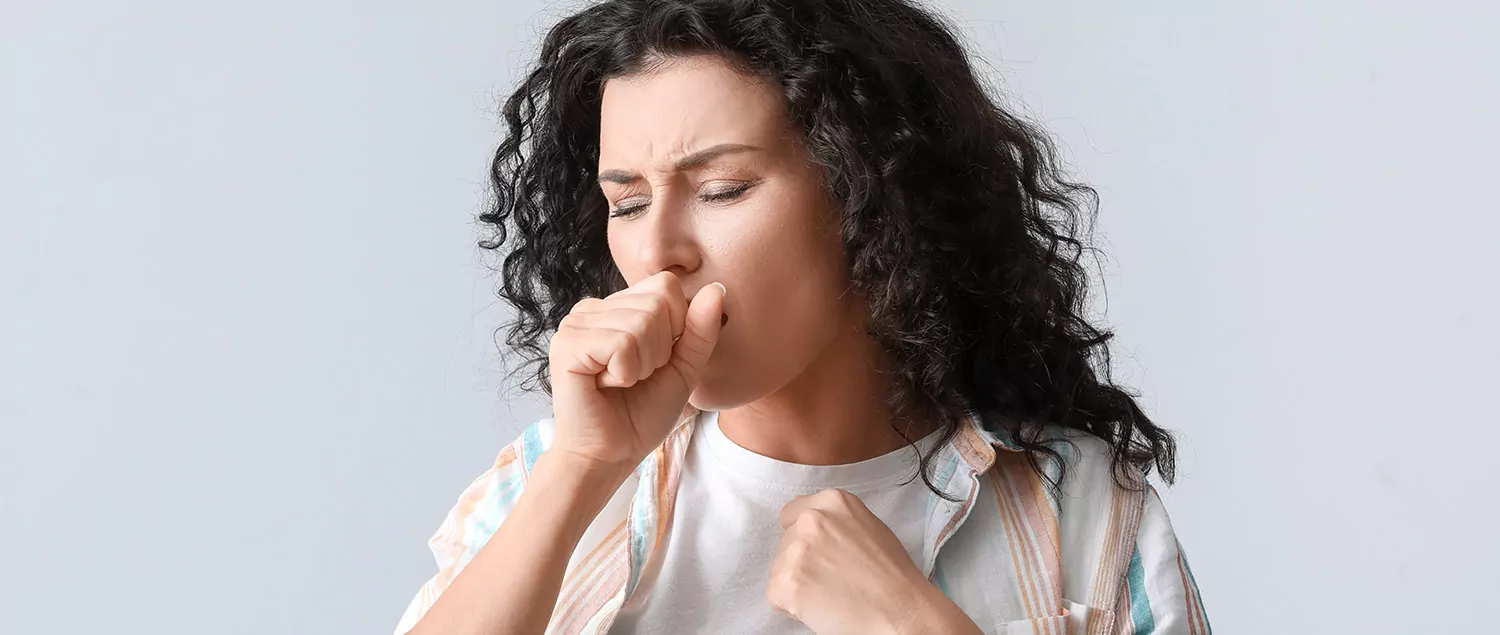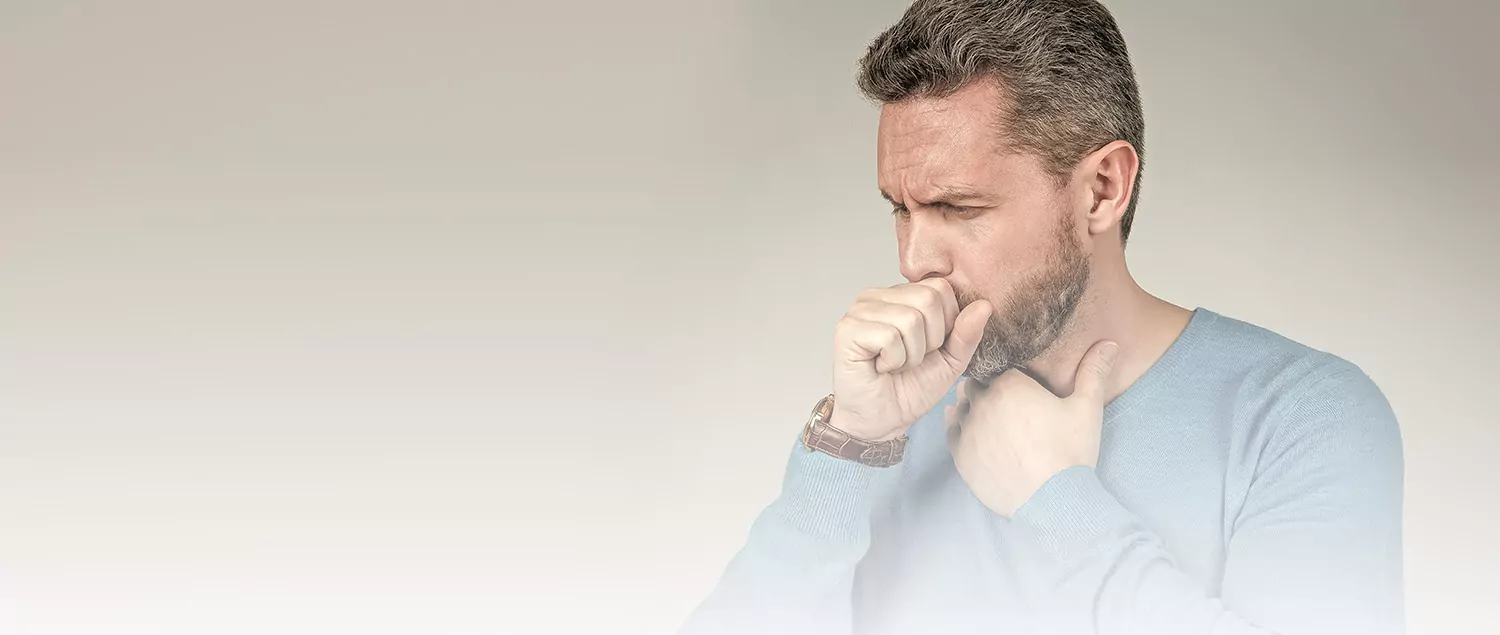How does a cough go away? What is Good for Cough?
Coughing can occur for many different reasons and is a common symptom that many people experience at some point in their lives. It can occur especially during colds, flu or other respiratory infections.What Causes a Cough?
The cough reflex starts in response to a stimulus, usually in the throat or airways. The main purpose of coughing is to clear the airways and maintain respiratory function. The causes of coughing are quite diverse and can vary depending on the patient’s age, gender, medical history and environmental factors. The causes that answer the question “Why does a cough happen?” are the following:- Respiratory Infections: Infections such as flu, colds, bronchitis and pneumonia are common causes of acute cough.
- Allergies: Exposure to allergens such as pollen, house dust mites, animal dander and fungal spores can cause an allergic cough. Allergies are also one of the answers to the question “What causes a cough with phlegm?“.
- Smoking Smoking is one of the most common causes of chronic cough. Cigarette smoke can irritate the airways and cause coughing.
- Acid Reflux: Stomach acid backing up into the esophagus (gastroesophageal reflux disease) can cause chronic coughing.
- Asthma Asthma can cause narrowing and inflammation of the airways, leading to coughing.
- Medications: Cough may occur as a side effect of medications, especially those that lower blood pressure.
- Obstructions in the Respiratory Tract: Obstructions such as foreign bodies, tumors or chronic obstructive pulmonary disease (COPD) can lead to a chronic cough.
What Causes a Dry Cough?
A dry cough is a type of cough without phlegm or mucus and is often caused by irritation of the throat or inflammation of the airways. This type of cough is often accompanied by a feeling of congestion or discomfort and can be uncomfortable. The answer to the question “What causes a dry cough?” can be listed as follows:- Upper Respiratory Infections: One of the most common causes of dry cough is upper respiratory tract infections such as colds or flu. These infections can occur when viruses irritate the throat. They are often accompanied by other symptoms such as nasal congestion and sore throat.
- Smoking Smoking can irritate the lungs and throat. The chemicals in cigarette smoke can damage the delicate tissues of the throat, which can lead to a dry cough.
- Postnasal drip Nasal mucus can sometimes drain back into the throat. This is called postnasal drip. Conditions such as allergies, sinus infections or sinusitis can be one of the causes of this drip.
- Asthma Asthma is an inflammation of the airways characterized by difficulty breathing and coughing. Asthma attacks can trigger a dry cough.
- Reflux Disease: Reflux disease is a condition in which stomach acid escapes back into the esophagus. Stomach acid can irritate the throat, which can lead to a dry cough.
- Side effects of medicines: Some medicines may have side effects that can cause dry cough. Drugs that lower blood pressure, especially ACE inhibitors, can cause this symptom.
How to Get Rid of Cough Fastest at Home?
Coughing can be an unpleasant symptom that many people experience and can interfere with daily life. However, there are some effective ways to quickly relieve cough at home and speed up the healing process. The methods that can be given in response to the question “How does a cough go away?” are as follows:- Breathing moist air: Breathing moist air can be very effective to relieve coughing. Especially in winter, when the air indoors dries out due to heating systems, it is beneficial to breathe moist air. Using a humidifier or inhaling the steam from the bath after bathing can also reduce coughing.
- Drink plenty of fluids: The body may need more fluids during a cough. Drinking plenty of water keeps the throat moist and helps to dilute phlegm. For this reason, it is also among the preferred methods when soothing a cough with phlegm that does not go away. Hot herbal teas or hot lemon water can also relieve coughing.
- Using Honey In some cases, the fastest cough suppressant is home honey. Honey is used as a natural method to relieve coughing. Honey has a soothing effect on coughs.
- Gargle with salt water: Gargling with salt water can reduce throat irritation and soothe the throat.
- Keeping the Room Temperature Ideal: Raising the room temperature excessively can worsen a cough.
- Rest The body needs rest to fight infection. Getting enough sleep and rest can speed up the healing process.
- Consulting a doctor It is important to consult a doctor if the cough persists for a long time or if there are other signs of a serious health problem. Treatment for a choking cough is carried out by a doctor, as there may be a more serious underlying condition.

How does a cough go away?
Cough treatment varies depending on the underlying cause. Therefore, it is not possible to give a clear answer to the question “How to stop coughing?“. Treatment options may include medicines, allergy treatment, lifestyle changes and treatment of infections. To prevent coughing, it is important not to smoke, try not to be exposed to allergens and adopt a healthy lifestyle. There are many ways to relieve and cure a cough.How does a dry cough go away?
A dry cough is a type of cough in which the throat is irritated and there is no sputum production. This type of cough is usually the result of an irritant. The answers to the question “How to relieve a dry cough?” include moisturizing respiratory medicines, cough syrups and medicines to reduce irritation. Increasing humidity levels and providing proper ventilation, especially indoors, can also help provide relief in the event of a persistent dry cough .What is good for cough with phlegm?
Cough with phlegm is a type of cough characterized by the production of phlegm by the body. Cough with phlegm often accompanies bronchitis or other respiratory infections. This type of cough occurs because sputum accumulates in the airways. In this case, the answer to the question “How does a cough with phlegm pass?” is curious. Treatment options may include prescription sputum thinners, inhalers and antibiotics used in accordance with doctor’s recommendations. In this type of cough, drinking plenty of fluids, moisturizing steam inhalation and doctor-prescribed expectorants can be effective. It is also important to follow doctor’s advice if there is an underlying infection or respiratory condition.What is Good for Cough in Children?
Coughing in children can be a matter of concern for parents. The question “What is good for coughing in children?” is asked by many parents. Cough treatment in children may differ from adults. Especially in children, cough causes can include infections, allergies or asthma. Therefore, it is important to consult a pediatrician for cough treatment in children. Hot drinks, moisturizing steam inhalation and prescription cough syrups suitable for children can be used. Generally recommended treatment options may include increasing fluid intake, using appropriate cough medicines and paying attention to hygiene rules.What is Good for Cough in Babies?
Coughing in babies is something that can worry moms and dads. Causes of coughing in babies may include colds, allergies or respiratory infections. It is important to consult a doctor to get an answer to the question “How does a cough in babies go away?“. Depending on the age of the baby and the cause of the cough, the doctor will recommend appropriate treatment options. These treatment options may include using steam humidifiers, special cough suppressants for babies and frequent breastfeeding.Frequently Asked Questions
Cough is a common health problem and can affect people of all ages. Many people are looking for an answer to the question “What is good for cough?“. Answers to frequently asked questions about coughing are given below.
What is Good for a Persistent Cough?
A persistent cough can be a symptom of a serious underlying problem. First, it is necessary to contact a health professional to understand the cause of the cough. Once the cause of the cough has been identified, the doctor will recommend appropriate treatment options. These treatments may vary depending on the underlying cause of the cough.
What is Good for a Night Coughing Attack?
To determine the underlying causes of night coughs and to get an answer to the question “What is good for a night coughing attack?” it is necessary to consult a doctor. To relieve a night cough, it can be helpful to drink plenty of water before going to bed, use moisturizing devices and use appropriate prescription cough medicines. Using a pillow that elevates the head or a special headboard can prevent stomach acid from escaping back into the esophagus. Avoid eating heavy meals, especially before bedtime, and limiting acidic foods can also prevent an increase in coughing. In case of an allergic cough, it is important to use anti-allergenic bed linen and clean the bedroom regularly to reduce allergens in the bedroom.
What Is Good for Allergic Cough at Home?
Things that can be done at home to relieve an allergic cough include avoiding allergens, cleaning the house frequently, using anti-allergenic bedding and taking allergy medication. However, if the symptoms persist, the doctor should be contacted again for the answer to the question “What to do for a cough that does not go away?“.
How long does the cough last?
The duration of cough may vary depending on the underlying cause and treatment. While a cough due to a simple cold usually goes away within a few weeks, chronic coughs can last longer.
How to Treat a Coughing Attack?
To relax during a coughing attack, you should stay calm and breathe deeply. Drinking plenty of water keeps the throat moist and can ease a coughing attack. It is also important to use the medicines recommended by the doctor regularly to better manage the cough.
What Are the Fastest Cough Suppressant Drinks at Home?
Preparing the fastest cough suppressant drinks at home can relieve coughing. Adding honey and lemon to hot water can soothe the throat. Fresh ginger tea can also be given as an answer to the question “What is good for cough?“. However, these drinks only provide temporary relief and do not treat the underlying cause.
Cough may require different treatments depending on the underlying cause. You should always consult a health professional to relieve and treat a cough. It is important to get the right treatment to regain your health.





